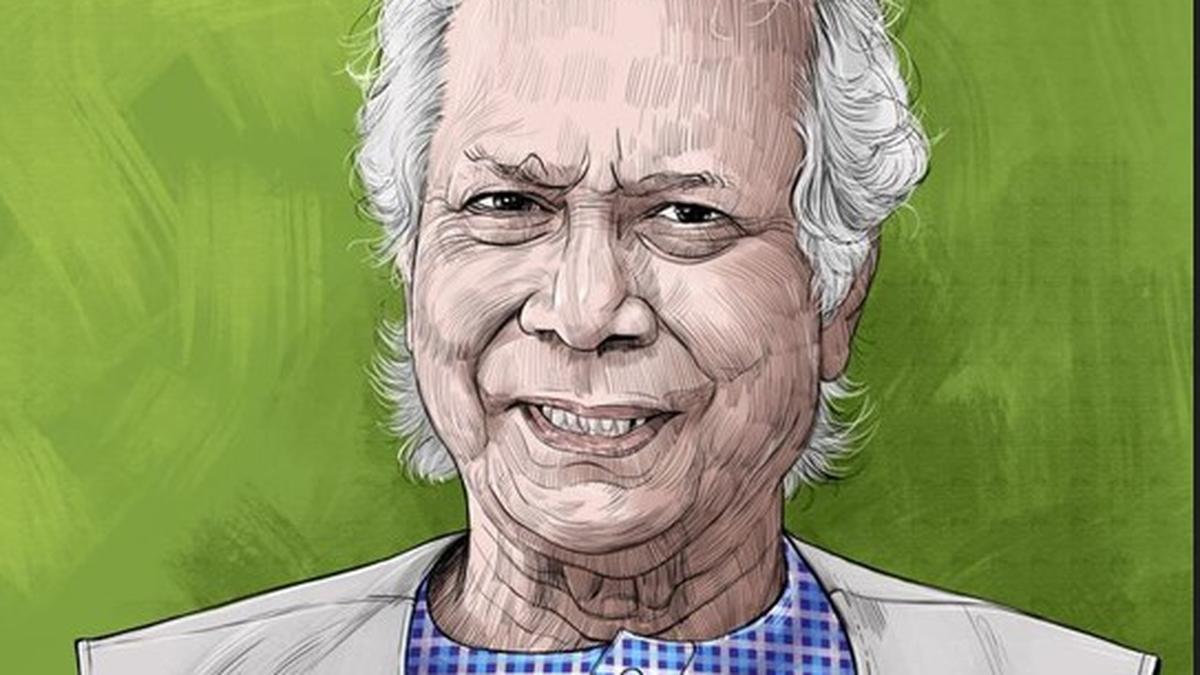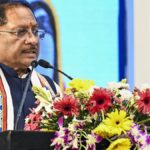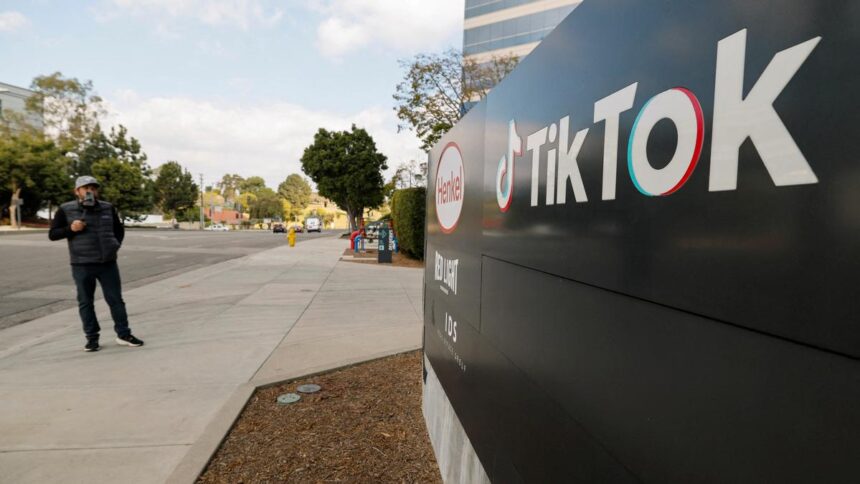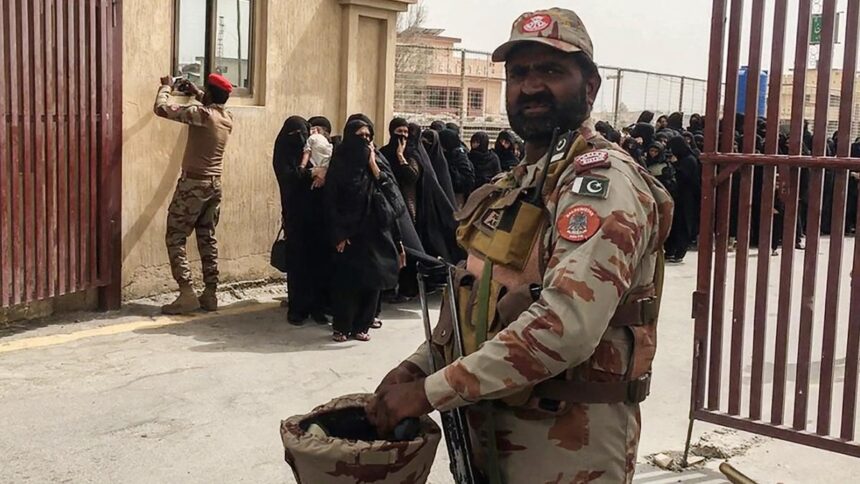Muhammad Yunus was born in Chittagong in southeast Bengal at the height of the Second World War when the Japanese captured Myanmar and threatened parts of eastern India. By the time he turned three, Japanese bombers flew over the skies of Chittagong where they would release anti-British pamphlets. One day, a Japanese bomb fell nearby and demolished a part of his house, forcing the whole family to shift to a village. Uncertain circumstances at home inculcated the importance of dialogue and compromise within him. Over the past year, as the Chief Adviser to the interim government of Bangladesh, Mr. Yunus, 85, has displayed some of the skills he gathered during his early life.
In his latest nationally televised speech delivered on August 5, marking the first anniversary of the fall of the Sheikh Hasina government, Mr. Yunus was more emphatic about the promises that he had made upon taking charge on August 8, 2024. Bangladesh was teetering on the brink with an expanding power vacuum after Ms. Hasina fled to India. As Mr. Yunus held his first press interaction on landing at Shah Jalal Airport of Dhaka, there was an air of uncertainty around him and it was not clear if he would be able to hold the government consisting of ‘advisers’ together. A year later, he appears to be the undisputed face of the interim government. To deal with the deteriorating law and order situation and the breakdown in the political system, he promised to hold election in February 2026. “We will step into the final and most important phase after delivering this speech to you and that is the transfer of power to an elected government,” Mr. Yunus said.
Consensus candidate
A former professor of economics at Chittagong University, pioneer of microfinancing and winner of the 2006 Nobel Peace Prize, Mr. Yunus was brought in to head the interim administration as the consensus candidate of anti-Hasina movement. He started talking of transfer of power soon after he took charge last August, but it was not clear how that process would be completed amid law and order problems and political instability. His first move was to take his large body of international well wishers into confidence.
Weeks after taking charge as Chief Adviser, he proceeded to New York to introduce the new ruling elite of Bangladesh — the student leaders. He addressed an event supported by the Clinton Foundation where he introduced Mahfuz Alam, one of the key mobilisers of the anti-Hasina uprising, to former U.S. President Bill Clinton. Mr. Alam and other student advisers made up the inner circle of Mr. Yunus, who demanded Hasina be brought back from India. Tensions rose in bilateral ties in the subsequent months. When a flood ravaged eastern Bangladesh in the end of August 2024, Bangladesh blamed India for releasing river water, and Mr. Yunus summoned the Indian High Commissioner.
Ties with India
Mr. Yunus first visited India in his teens when he travelled through India to Karachi in West Pakistan as a boy scout to participate in a jamboree. He has fond memories of that visit that he wrote in his autobiography, Grameen Bank O Amaar Jibon. But Bangladesh’s relations with India under his leadership were marked by a series of disruptions. Late last year, Mr. Alam made social media statements depicting large territories of India as part of Bangladesh. He deleted his Facebook post, but the Ministry of External Affairs of India lodged a strong protest. The next episode came when Mr. Yunus visited China during March 26-29, 2025 when he said India’s northeast, “a land-locked region”, “opens up a huge possibility” for an extension of the Chinese economy” through Bangladesh. This also drew a strong response from India, which on May 17 barred all its land ports from receiving Bangladesh’s apparel exports.
At home, Mr. Yunus had to deal with internal structural challenges. In May, with law and order challenges continuing, Army chief General Waker uz Zaman told his colleagues that the interim government had been conducting affairs of the state without consultation. Two months earlier, Mr. Yunus had promised to hold election by December 2025. But uncertainty prevailed as domestic unrest continued to be a major problem. On the night of May 21, Gen. Zaman held a closed-door meeting with his Commanding Officers. “Elections must be held by December and that only an elected government should determine the nation’s course and not an unelected administration,” he was reported to have said in the meeting.
The gist
A former professor of economics at Chittagong University and pioneer of microfinancing, Muhammad Yunus was brought in to head the interim administration as the consensus candidate of anti-Hasina movement
He started talking of transfer of power soon after he took charge last August, but it was not clear how that process would be completed amid law and order problems and political instability
He has now got the BNP and the Jamaat-e-Islami on his side and banned the Awami League while his government is preparing to hold elections in February 2026
It was a proposal from the National Security Adviser, Khalilur Rahman, to open a “humanitarian corridor” to conflict-hit Rakhine province of Myanmar that triggered the strong response from Gen. Zaman.
The idea behind the corridor was to provide the conflict-hit province and its Rohingya citizens the necessary resources. However, there was no clarity about who would enforce peace in the corridor as peace was crucial for such a conflict zone project. Mr. Rahman has also served an important role in establishing connection between the Yunus-led government and the Donald Trump administration in the U.S.
The Trump administration had initially targeted Bangladesh with a 37% tariff but after negotiation, the duties were lowered to 20%, which is being seen as an achievement for Mr. Yunus. Another success has been his outreach to the Bangladesh Nationalist Party (BNP) and the Jamaat-e-Islami. The BNP criticised him in May for delaying the election, but Mr. Yunus managed to get the party on his side when he unveiled the “July Declaration” on August 5. Similarly, the Jamaat criticised his plans to allow a UN Human Rights Office in Bangladesh but has more or less stayed with him throughout the past year.
Words and deeds
However, the biggest issue before Mr. Yunus is the disjuncture between his remarks and the reality when it comes to holding elections. In his speeches on Id in June as well as on August 5, he promised to hold “inclusive elections that will be the largest in the history of Bangladesh”. Yet, it is clear that the next election will not have participation from the Awami League, which has been banned. Mr. Yunus has repeatedly attacked the Awami League and Ms. Hasina as “defeated fascist forces”. On August 5, he blamed Ms. Hasina for jeopardising the country’s financial health. In turn, the Awami League described Mr. Yunus as a “razakar”, a derogatory term used to describe collaborators of Pakistan who attacked Bengalis in 1971.
This anti-Hasina approach has defined much of the promises of justice that Mr. Yunus has made. One of the crucial developments of the past year under Mr. Yunus has been the reconstitution of the International Crimes Tribunal (ICT) in Dhaka. The ICT, which was originally constituted by the Hasina government in 2010, has now turned against the former Prime Minister and issued arrest warrants against her. Mr. Yunus has accused Ms. Hasina of holding successive rigged elections by excluding major parties. But by excluding the Awami League from the coming elections, Mr. Yunus’s legacy may end up with the same shortcoming.
Published – August 10, 2025 01:11 am IST





















